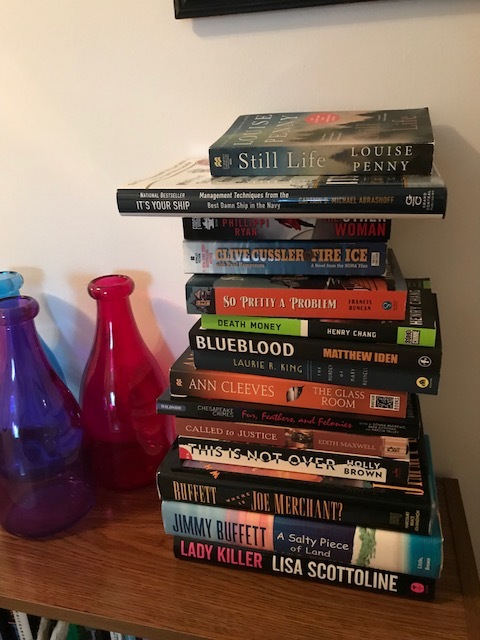Here's my list of ABCs for Writers. What would you add?
Analytics - Use your web, blog, and social media analytics to help you see which of your marketing efforts are working.
Blog - Make sure your blog is on your website and use your posts to drive traffic to your website.
Critique Group - Find a group or a writing partner to help you refine your work. Honest feedback is priceless.
Due Dates - Make sure you adhere to deadlines. It's important for professional writers to meet their commitments.
Editors - You need an editor to polish your work and get it ready for publication. Don't scrimp on the editing.
Facebook Author Page - Create an author page to highlight your work and activities. A fan page has more analytics that will help you track your analytics.
Goodreads - Create a Goodreads author page. This site provides you access to a lot of readers, bloggers, and reviewers. Join interesting groups to interact with other readers.
Headshot - Make sure that you have a professional headshot that you can use on your book, website, and social media sites. This is a good investment for your writing career.
Imagination - Your imagination is your gift. Do activities to increase your creativity.
Judgmental - Don't be too hard on yourself. You are probably your worst critic. Set goals. Try your best. Learn from mistakes and move on.
Knuckle down - Stay focused. Keep your goals in mind. The only way to be a writer is to write. My friend Alan Orloff calls his process BICFOK - Butt in Chair; Fingers on Keyboard.
Learn - Stay curious and ask questions. Seek learning opportunities (There are tons of low cost/free courses online.)
Marketing Budget - Decide what you can spend to market your book. Create a plan and track your results. And keep a list of what works and what doesn't.
Networking - Writing is a solitary task. Make sure you have regular contact with other writers (in person or online) to share celebrations, ideas, and bumps in the road. We're all in this together.
Organization - Make sure you keep your workspace (physical and computer) organized. Delete what you don't need. You need to be able to find stuff.
Proofread - Proofread! Proofread! Proofread! I can't say it enough. And then find another set of eyes to read your manuscript.
Quality - People notice lack of quality (e.g. formatting issues, typos, grammatical errors). You'll lose readers. And once you've lost them, they rarely come back. Invest in an editor and a proofreader.
Reading - Make sure to read everything you can get your hands on. Plus, if you're a writer, you're doing research.
Social Media - Decide which social media platforms work for you AND your readers. Build your following on those sites.
Time - Guard your writing time. Life is busy, and you have lots of commitments, but you have to make time if you want to be a writer. Try to write something every day.
Updates - Make sure that your computer is updated/patched regularly to protect your system AND your work. Make sure that you backup your work.
Visit - Visit lots of places and try new things. You'll never know where you'll get a story idea. And take pictures for your social media sites.
Writing - Work on your craft. Go to seminars and take online courses. Try some author workshops. Improve your craft any chance you get.
XOXO - Thank your readers and fans. Appreciate those who buy your books or help you. Show some love on your social media sites.
Yum! - Take a break once in a while and celebrate. Treat yourself to your favorite thing. (Mine is dark chocolate.)
Zzzzz - Make sure you get enough rest. If you burn out, you can't be effective.





















